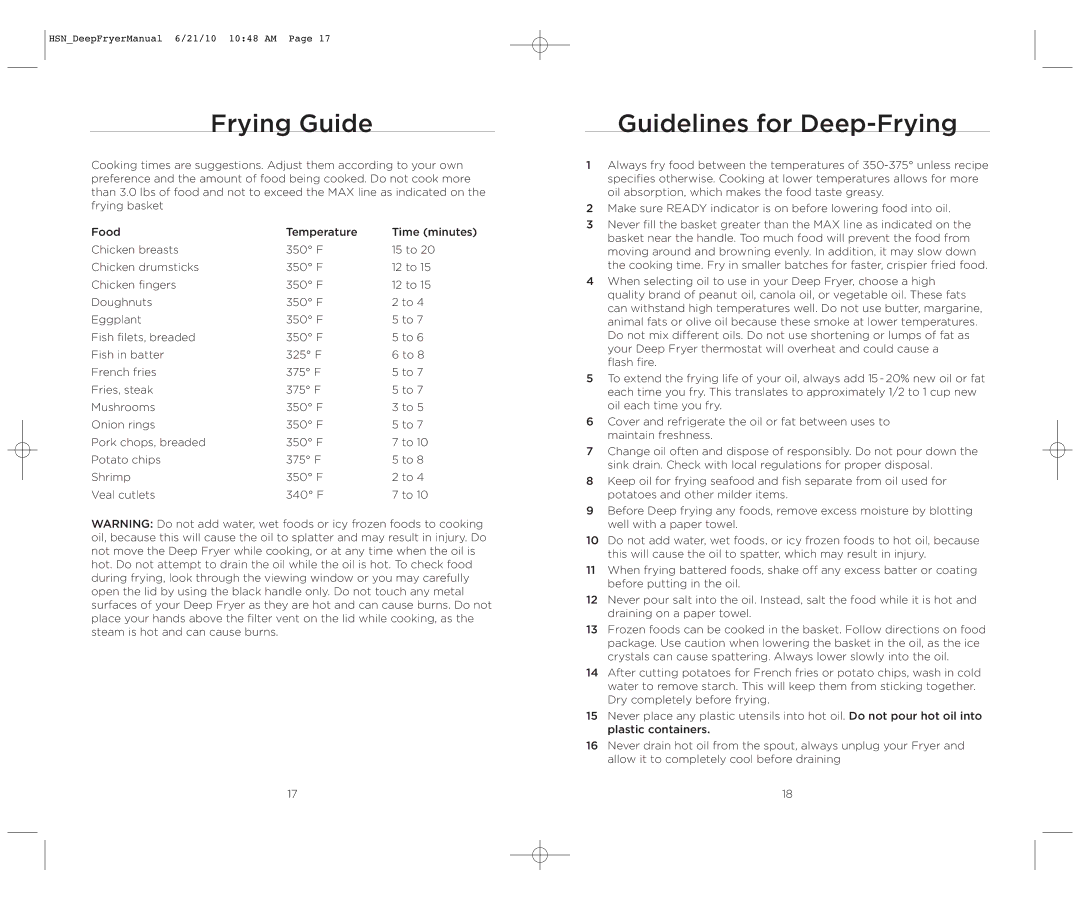BDFR0060 specifications
The Wolfgang Puck BDFR0060 stands out as an exceptional kitchen appliance designed to enhance the cooking experience for both novice cooks and culinary enthusiasts alike. This versatile device is primarily known for its multifunctional capabilities, allowing users to sauté, slow cook, steam, and even bake with just one machine. This versatility makes it an invaluable addition to any kitchen, transforming meal preparation into a more efficient and enjoyable task.One of the key features of the Wolfgang Puck BDFR0060 is its large capacity, which is ideal for preparing family-sized portions or entertaining guests. The generous cooking chamber provides ample space for creating everything from hearty stews to decadent desserts, ensuring that users can cook multiple servings simultaneously. With adjustable temperature settings, this appliance allows for precise control over cooking temperatures, enabling you to achieve perfect results every time.
In terms of technology, the Wolfgang Puck BDFR0060 utilizes advanced digital controls that make cooking more intuitive. The user-friendly interface includes pre-programmed settings tailored for specific cooking tasks, allowing for a hassle-free cooking experience. This feature is particularly beneficial for those who may not have extensive culinary experience, as it takes the guesswork out of the process.
Another notable characteristic of the BDFR0060 is its durable construction. Made from high-quality materials, this appliance is built to withstand the rigors of daily use. The sleek, modern design also makes it an attractive addition to any kitchen countertop, blending functionality with aesthetic appeal.
Safety is a significant consideration in the design of the BDFR0060. It incorporates features such as an automatic shut-off mechanism, which mitigates the risk of overheating or accidents while cooking. Additionally, the non-stick cooking surface allows for easy food release and simplifies the cleanup process, making it a user-friendly choice.
In summary, the Wolfgang Puck BDFR0060 is an innovative, multifunctional cooking appliance that delivers exceptional performance and versatility. With its large capacity, advanced digital controls, and durable construction, it revolutionizes meal preparation and caters to the diverse needs of home cooks. Whether you are simmering a savory soup or baking a delectable cake, this appliance ensures that you achieve delicious results with ease.

